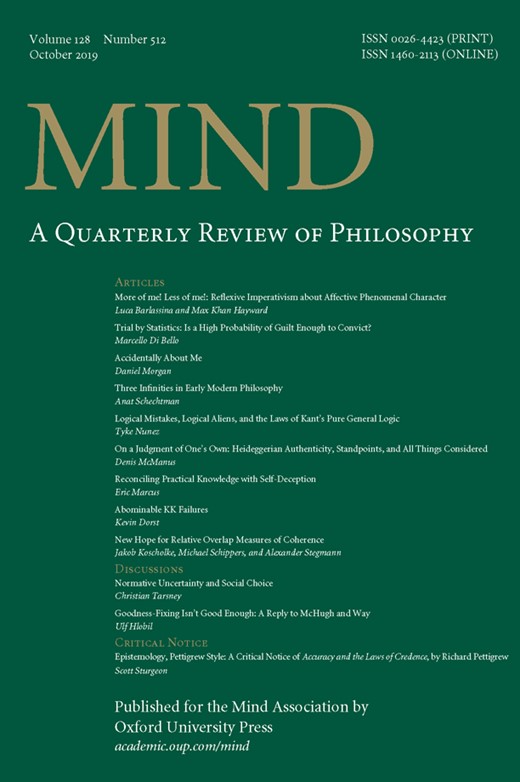-
Views
-
Cite
Cite
Daniel Morgan, Accidentally About Me, Mind, Volume 128, Issue 512, October 2019, Pages 1085–1115, https://doi.org/10.1093/mind/fzy080
Close - Share Icon Share
Abstract
Why are de se mental states essential? What exactly is their de se-ness needed to do? I argue that it is needed to fend off accidentalness. If certain beliefs – for example, nociceptive, proprioceptive or introspective beliefs – were not de se, then any truth they achieved would be too accidental for the subject to count as knowing. If certain intentions – intentions that are in play whenever we intentionally do anything – were not de se, then any satisfaction they achieved would be too accidental for the subject to count as intentionally acting. How states hook on to their referent is relevant in a systematic but underexplored way to whether they non-accidentally achieve their aim – truth in the case of beliefs, satisfaction in the case of intentions. In the relevant cases, the way of hooking on to a referent needed to avoid being accidental is the way a de se state hooks on to its referent.



